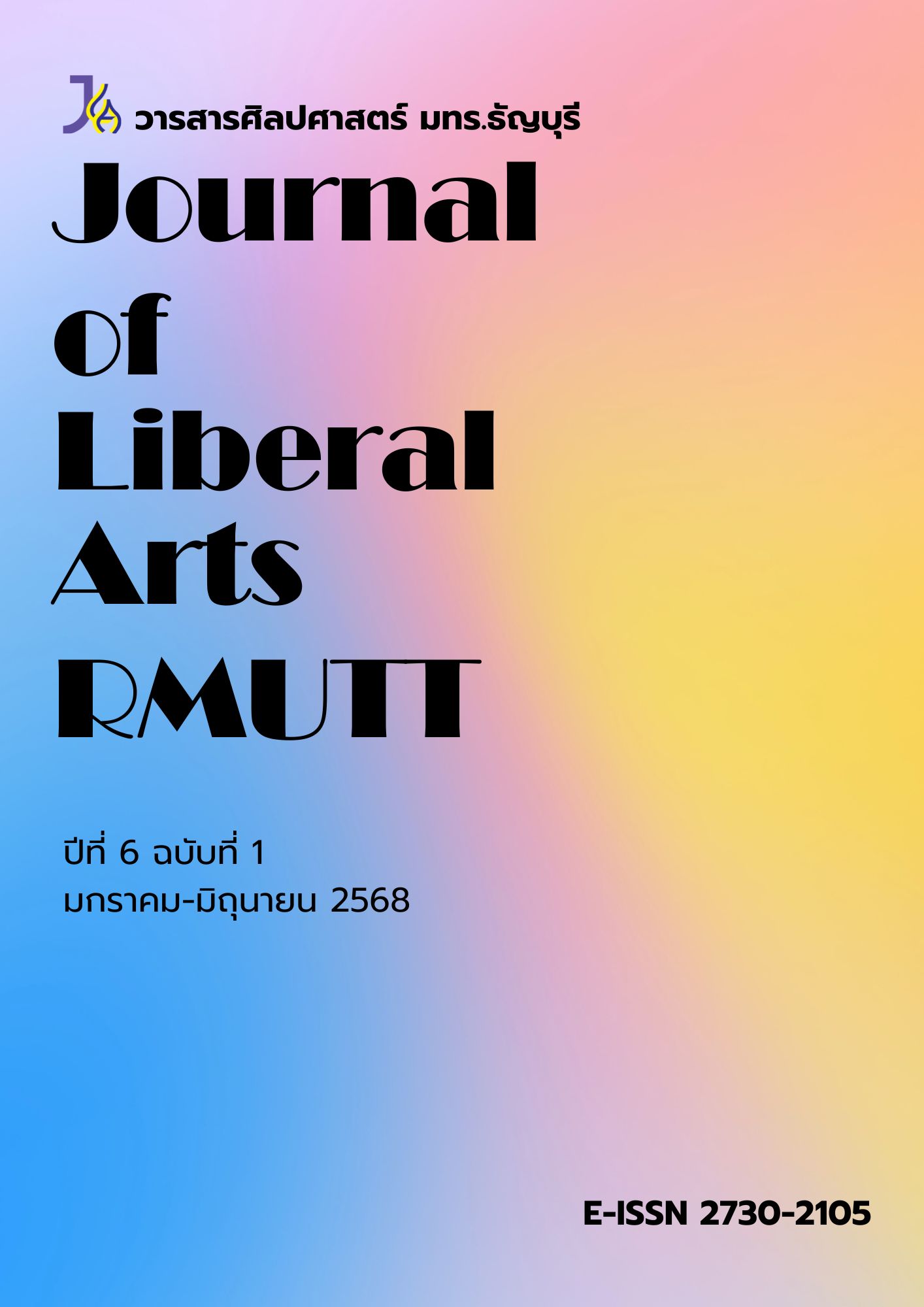Laws on Protecting the Benefits and Compensation Owed to Conscripted Soldiers
DOI:
https://doi.org/10.60101/jla.2025.6.1.5322Keywords:
military conscription, protection of benefits, military lawAbstract
This research aims to 1) study and compare the laws on the protection of benefits and compensation for military conscripts in Thailand and other countries; 2) study and analyze legal problems related to the protection of benefits and compensation for military conscripts in Thailand; and 3) propose guidelines for amending and improving laws related to the protection of benefits and compensation for military conscripts in Thailand. This research is a qualitative research, studying and researching data from concepts, theories, legal texts in Thailand and laws from other countries. The research results found that the current laws on the protection of benefits and compensation for military conscripts do not cover the protection of benefits and compensation for military conscripts, both during service, such as compensation, welfare, education, and after discharge, such as employment and medical treatment, including various benefits for military conscripts that are outdated and do not correspond to the current situation. From a comparative study of laws on the protection of benefits and compensation for military conscripts in the Republic of Finland, the Republic of Singapore, and Israel, it was found that there are important legal issues that can be used as guidelines for amending, improving, and developing Thai laws. Recommendations from research are to amend the law according to the Military Service Act of 1954, including the Military Personnel Regulations Act of 1978, to protect the benefits of compensation, welfare and education for conscripts while on active duty, and to protect the benefits of employment and medical treatment for conscripts after discharge.
References
ชุติกาญจน์ สายอุตส่าห์. (2561). ปัญหาการจำกัดสิทธิและเสรีภาพตามรัฐธรรมนูญแห่งราชอาณาจักรไทย พุทธศักราช 2560. วารสารวิชาการรมยสาร, 16(3), 49-62.
ผดาสวัสดิ์ วุฒิมานานนท์. (2559). คุณภาพชีวิตทหารเกณฑ์หลังปลดประจำการ: ศึกษากรณีทหารเกณฑ์ที่มีภูมิลำเนาในอำเภอสามโก้ จังหวัดอ่างทอง [วิทยานิพนธ์ปริญญามหาบัณฑิต, มหาวิทยาลัยราชภัฏพระนครศรีอยุธยา]. ฐานข้อมูลวิทยานิพนธ์อิเล็กทรอนิกส์ มหาวิทยาลัยราชภัฏพระนครศรีอยุธยา. http://etheses.aru.ac.th/PDF/1256191915_11.PDF
ศูนย์ประสานการจัดสวัสดิการข้าราชการ. (2544). แนวคิดเกี่ยวกับการจัดสวัสดิการภายในส่วนราชการ. https://www.welfarepolice.com/newweb/file_upload/news/file/73-0-20100729112653K8.pdf
สิริพันธุ์ สหัสรังสิกุล. (2556). คุณภาพชีวิตในการทำงานและความสามารถในการเผชิญและฝ่าอุปสรรค ของพลทหารกองประจำการ. รายงานสืบเนื่องการสัมมนาวิชาการเนื่องในโอกาสการสถาปนาคณะสังคมสงเคราะห์ศาสตร์ มธ., 59, 132-138.
สุชาย ทะสุวรรณ์ และพระราชปริยัติมุนี (เทียบ สิริญาโณ). (2561). แนวทางการสร้างขวัญกำลังใจของทหารกองประจำการตามหลักพรหมวิหาร 4: ศึกษาเฉพาะกรณี กรมทหารขนส่งรักษาพระองค์. ใน การประชุมนำเสนอผลงานวิจัยระดับบัณฑิตศึกษา ครั้งที่ 11, 2561, 2345-2353, หน้า 2,345-2,353. ม.ป.ท.: บัณฑิตวิทยาลัย มหาวิทยาลัยรังสิต.
อภิลักษณ์ เนียมกล่ำ. (2564). การพัฒนากฎหมายว่าด้วยรูปแบบการเกณฑ์ทหาร [วิทยานิพนธ์ปริญญาดุษฎีบัณฑิต, มหาวิทยาลัยศรีปทุม]. คลังข้อมูลสถาบันมหาวิทยาลัยศรีปทุม. http://dspace.spu.ac.th/handle/123456789/8086
Hao, C. C. (2013). The citizen-soldier in modern democracies: The Case for conscription in Singapore. Pointer, Journal of the Singapore Armed forces, 39(1), 42-50.
Heimann, A. (2022). Salaries, compensation, and benefits in the IDF: Implications for the regular and reserve service model. JSTOR Security Studies Collection, 1549, 1-6.
Kwok, D. J. (2014). Why conscription, Singapore? The social and geostrategic considerations [Doctoral thesis, Naval Postgraduate School]. CORE. https://core.ac.uk/download/pdf/ 36733706.pdf
Downloads
Published
How to Cite
Issue
Section
License
Copyright (c) 2025 Journal of Liberal Arts RMUTT

This work is licensed under a Creative Commons Attribution-NonCommercial 4.0 International License.













